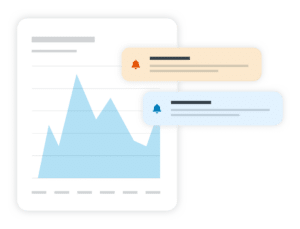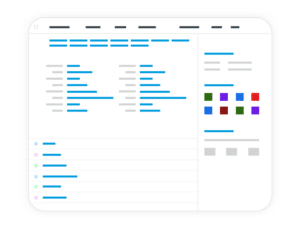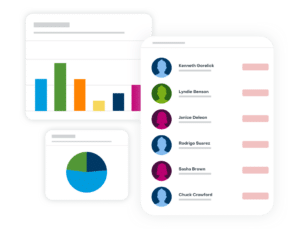Prevent Customer Resignation: Start Small, Deliver Impact, Think Big
With a global customer resignation rate of 32%, prevention is a hot topic for most organizations. And good news! There is a path forward for companies wanting to deliver high-definition customer experiences (HD-CX). To find it, we asked questions and listened to what market players had to say. For our 2022 CRM Impact Report, we interviewed both sales and marketing leaders. We wanted to know their challenges and what’s keeping them awake at night, as their partnership is critical to every business and customer success.
The findings concluded that companies are fighting to diminish conflicting leaks both at the beginning of the customer lifecycle and when it comes to customer retention.
Since customer experience is the ultimate measure of churn, it is essential to identify and address what negatively impacts customers’ experience.
There are a few strategies that you can adopt to make it easier for your teams to hold it all together, no matter what your business area is.
Make Data-Driven Decisions
Data helps you understand and predict engagement, taking the guesswork out of how you liaise with your customers throughout the entire lifecycle.
However, the heart of the issue is that organizational culture hasn’t changed enough for many to value data that helps sales and marketing get better at what they fundamentally do. Being data-driven requires a strategy and a culture shift to using the right technology and raw material across the whole organization for a consolidated view of customer information.
Data-driven decisions are active. It means your organization has turned the corner by using data to uncover insights like finding the next opportunity because you don’t want to try to sell again and again to the wrong ideal customer profile (ICP).
Make Your CRM More Accessible
It’s essential to have accessible, intuitive tools that work your way, not how the engineers who built them think they should. Personalization is important not only for your customers but also for your people. When an employee logs in, the dashboard must reflect how that person works, helping them do their regular job and not making them feel frustrated about the day ahead of them.
Many reasons people don’t look at CRMs are tied to not getting access to the things they need and having helpful answers.
Improve Organizational Alignment
Ensure access to the correct data and stay in contact in every way that makes sense to you and your customers. When your systems aren’t integrated, you don’t have a full view of the CX front line and can potentially miss what’s happening in the engagement dynamic. Your CRM solution and integrated technologies must ensure alignment of the internal assets and KPIs, so all your teams have visibility into all customer information. This incentivizes them with the same goals and wins.
Alignment should refer to execution as well. For example, there will be nothing worse than launching a marketing campaign at the same time with a customer retention strategy aimed at the same set of customers.
The Growing Role of AI
We use artificial intelligence (AI) in many tools without even knowing it (e.g., movie recommendations), but companies are now looking to use it differently when it comes to their business operations. Companies are now moving beyond only leveraging AI to automate and predict repeatable processes, they are now using it as revenue assistant. They are looking into functions such as predicting a deal close or identifying a leading indicator of customer churn that only AI can see in the vast amount of data.
There are two reasons AI fails within an organization: the lack of a strategy around why you are applying it and the lack of data. AI should have enough data to learn and up-level the insights and intelligence we need. It must be trained to know your business, language, and customers.
There have been many talks in the market about how AI is costly—It does not have to be. Find your business pain points, whether for your employees or customers, or a combination of the two. This is where you start small, deliver impact, and think big. It’s about having that intelligent way to apply AI. Just saying I want a chatbot is not great. If your customers do not necessarily have anything to chat with you about, you will not get anywhere with it.
Next year’s report will also include our service counterparts to round out the picture. We want to see if there are any differences of opinion that we need to work hard to reconcile to overcome some of the challenges that are inhibiting all three groups.
Closing Thoughts
You must accept churn as a business reality, but being unable to understand and handle it will bring you from helpless to hopeless in no time.
If the last two years have taught us anything, we need to embrace change, and there is no better time than now. We need to accelerate this transformation, and the systems we use should facilitate this change.
Start thinking about customer experience from the customer’s point of view because it’s their experience, not your company’s experience. When we do not center our thinking around customers but the transaction or the selling unit, we deliver a negative customer experience in our effort to drive our customer experience KPIs.
Discover more findings that help you build strong customer experiences by getting the full report here. If you are interested in today’s CX strategies’ business transformation and technology requirements you need to prevent customer churn, you may get access to the webinar I hosted with Liz Miller, VP and Principal Analyst at Constellation Research.




